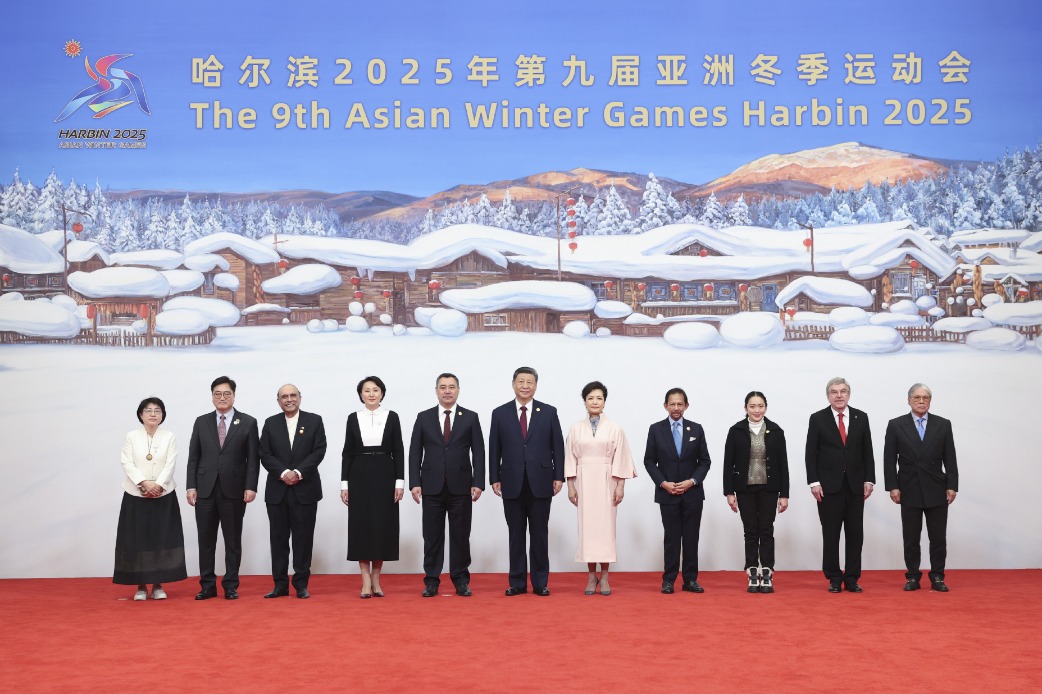Youths' disconnection from kin a cultural shift


The rising trend of youths' disconnection from relatives' networks represents a profound transformation in Chinese society — one that is both a consequence of socioeconomic changes and evolving culture. In the past, kinship ties were essential to social life, especially in rural communities. But they are rapidly fading among urban youths today.
To understand this trend, we need to examine several key factors, including the changing fabric of Chinese society, the pervasive influence of the internet, the complexities of urban life and the rise of individual autonomy among the youth.
China's shift from an agrarian society to an industrialized, urbanized society is the first reason behind the youths' disconnection from relatives. Rural life was built around strong family networks, where families supported each other and social and economic security was tied to the clan or village. Kinship was not just an emotional bond but a practical necessity. In rural communities, people spent their lives maintaining these networks, with kinship influencing all aspects of life.
But after the launch of reform and opening-up in the late 1970s, migration became a defining feature of Chinese society. Millions of people have left their hometowns to work, study or settle in cities, gradually replacing the traditional rural ties with interest-based social networks in urban areas.
For the younger generations growing up in cities, social life has become more fragmented and individualistic, leading to disconnection from the family networks their parents maintained in rural areas.
A crucial factor in this cultural shift is the rise of the internet and its pervasive influence, especially on the youth. The internet has fundamentally changed how people live, work, socialize and even unwind. For young people, particularly those born in the 2000s, the internet is not just a tool — it is their environment. They are "digital natives" whose every action, from work to leisure, is increasingly mediated by technology.
In this digital world, even leisure time is an extension of the internet. Gone are the days when young people visited relatives on holidays or weekends. Today, they are more likely to stay connected online than engage in face-to-face interactions with family. This detachment is both physical and psychological. The constant pull of social media, online gaming and virtual communities has redefined socializing for the new generation. "Family time" has been replaced by "screen time", weakening kinship bonds.
In this sense, the internet has become both a unifier and a divider. It connects youths with the world at large but also isolates them from the very family networks that once defined their social existence. The disconnection from family, especially among those whose time is consumed by online activity, is a direct outcome of this digital transformation. Kinship is no longer the central force in shaping identity. Now, the virtual world defines them.
As more and more youths migrate to cities and towns, they are no longer bound by the same family networks that their parents and grandparents painstakingly maintained. Instead, their relationships are defined by academic ties, professional networks and shared interests. In urban areas, relationships often revolve around common goals, such as education, career or hobbies, rather than family.
For many young people, especially those from single-child families, in cities, extended family bonds no longer play a central role. Instead, peer relationships have become more important. The rise of "de-ruralization", especially among younger generations of rural migrants in cities, has further weakened traditional family bonds. As a result, kinship is no longer the bedrock of individual identity.
Perhaps the most important reason for this shift is the increasing autonomy and individualism of today's youths. With each generation, the gap between the values of parents and children, their world-views and life choices has been widening. This disconnect often leads to conflicts, as youths assert their independence and work to fulfill their personal aspirations, rather than those imposed by tradition.
The tradition of parents exercising control over their children's lives — in terms of their career, relationship and personal decisions — is outdated. For many young people, this imposition feels like an infringement on their individuality, leading to tension and, in some cases, the severing of familial ties.
While this generational disconnect may appear as a consequence of modernization, it has deep social and emotional impacts. Many parents feel a sense of loss as their children distance themselves from the family and relatives. Some see it as a betrayal of traditional values, while others worry their children would feel isolated in the future without the support of relatives.
On the other hand, many youths feel burdened by family expectations, and seek "independence" to protect their emotional well-being.
The challenge facing Chinese society is how to balance these competing needs, and how to maintain family bonds while allowing youths the space they need to assert their individuality.
To rebuild the extended family ties among today's youths, we need to highlight the value of kinship. In today's world of individualism and nuclear families, anxiety and loneliness are common. This makes it necessary to fall back on the family for emotional support and stability. The same social platforms that have "alienated" the youths from family networks can play a crucial role in promoting family values and encouraging youths to reconnect with their roots. At the same time, both parents and children should adapt to the realities of modern life.
Also, youths must recognize the intrinsic value of family ties. While the digital world offers convenience and instant gratification, it cannot replace the emotional support and deep connections that kinship provides. Since the emotional bonds formed through kinship cannot be replaced by digital connection, youths must not be misled by the fleeting charm of online relationships.
In a rapidly changing society, where urbanization, digitalization and individualism are reshaping the social fabric, it is more important than ever to preserve and nurture the family as a source of support, warmth and continuity. Only by reconnecting with our roots — while seizing the opportunities offered by the modern world — can we ensure the family remains a cornerstone of Chinese society.
The author is an associate professor at the School of Social and Behavioral Sciences, Nanjing University. The views don't necessarily reflect those of China Daily.
If you have a specific expertise, or would like to share your thought about our stories, then send us your writings at opinion@chinadaily.com.cn, and comment@chinadaily.com.cn.

































